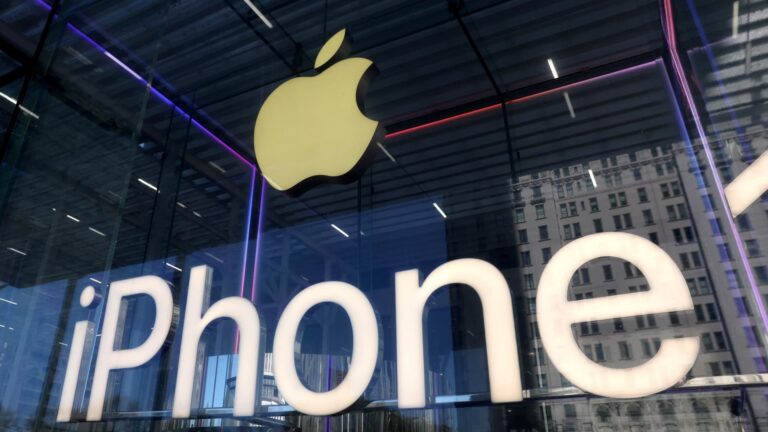The Apple store on 5th Avenue is seen in New York on April 8, 2025.
Timothy A. Clary | Afp | Getty Images
Forecasts for Apple and Samsung shipment growth this year were sharply slashed by Counterpoint Research on Wednesday amid uncertainty over U.S. tariff policy.
The research outfit said it had revised down its 2025 global smartphone shipment growth forecast to 1.9% year-on-year from 4.2% previously, citing “renewed uncertainties surrounding U.S. tariffs.”
U.S. President Donald Trump announced “reciprocal tariffs” on imports from countries around the world in April, but exempted smartphones and other electronics from those duties days later.
Still, with tariff uncertainty looming, Counterpoint Research slashed its growth forecast for the world’s two biggest smartphone players. Apple shipments are expected to grow 2.5% year-on-year in 2025, down from a previous forecast of 4%, according to Counterpoint Research. Samsung shipments are now anticipated to see no growth this year, compared with the 1.7% rise that was previously projected.
But it is not just tariffs behind these revised forecasts.
“All eyes are on Apple and Samsung because of their exposure to the US market. Although tariffs have played a role in our forecast revisions, we are also factoring in weakened demand not just in North America but across Europe and parts of Asia,” Counterpoint Research Associate Director Liz Lee said in a press release.
Apple’s downgraded shipment growth will be driven by the iPhone 16 series of devices, as well as by emerging market customers buying more expensive phones, Counterpoint said.
Shipments are not equivalent to sales and represent the number of devices that smartphones vendors send to retailers. They are one measure of the demand that smartphone vendors are expecting.
Apple in particular has come under scrutiny amid talk of U.S. tariffs on China, where the U.S. giant makes 90% of its iPhones. Apple has ramped up its shipments to the U.S. from India, where it has been steadily increasing production of its flagship product.
But this has also drawn the ire of Trump, who last month said that he doesn’t want Apple building iPhones in India, and that they should be manufacturing them in the U.S.
Counterpoint Research flagged Huawei as a bright spot in the sea of lowered forecasts, with the Chinese tech giant expected to notch a 11% year-on-year shipment growth in 2025.
“We are seeing an easing around sourcing bottlenecks for key components at least through the rest of the year, which should help Huawei grab substantial share in the mid-to-lower-end segments at home,” Ethan Qi, associate director at Counterpoint Research, said in a press release.
Huawei has seen a rebound in smartphone sales in its home market of China since late 2023, where a breakthrough in semiconductors for its devices, helped revive its fortunes.

